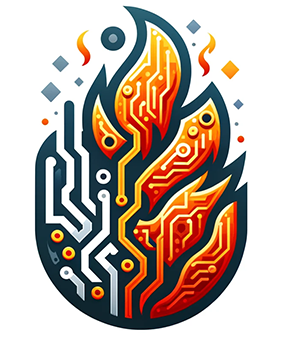### The EV Industry Can’t Shake its Human Rights Abuse Problem

*Workers walk in Glencore’s Mutanda Mine, which Tesla sources cobalt from, in southeastern Democratic Republic of Congo, on June 19th, 2023. | Photo by Emmet Livingstone / AFP via Getty Images*
The rise of electric vehicles (EVs) promised a cleaner, more sustainable future. However, this burgeoning industry is still heavily tainted by a legacy of human rights abuses connected to the mining of essential minerals.
#### Human Rights Abuses in Mineral Mining
A recent report from the nonprofit Business & Human Rights Resource Centre (BHRRC) paints a grim picture. The report highlights persistent allegations of human rights violations in the extraction of minerals vital for the production of EVs, rechargeable batteries, and renewable energy technologies. Unfortunately, the automotive giants continue to source their materials from companies implicated in these abuses.
Since 2010, BHRRC has meticulously documented 631 allegations of human rights abuses related to seven key minerals integral to the green energy and EV sector. Disturbingly, a significant portion of these allegations revolves around a small cohort of companies. Investigations by The Verge have identified connections between these companies and three of the world’s premier EV manufacturers: Volkswagen Group, Tesla, and BYD.
#### No Improvement Over Time
“Things are not improving,” stated Caroline Avan, head of natural resources and just transition at BHRRC. Despite increased scrutiny and efforts to promote ethical sourcing, the situation on the ground has shown little to no progress. Concerns range from exploitative labor practices, unsafe working conditions, to the environmental devastation wrought by mining operations.
#### Spotlight on Glencore’s Mutanda Mine
One startling example is Glencore’s Mutanda Mine in the Democratic Republic of Congo (DRC). The mine, crucial for cobalt production—a key component in lithium-ion batteries—has come under fire for severe labor and human rights abuses. Tesla, among others, sources materials from this mine, emphasizing the complex entanglement of leading EV manufacturers with problematic suppliers.
#### The Need for Responsible Sourcing
The persistent issues raised by the BHRRC report underscore the urgent need for automakers and tech companies to enforce stricter due diligence and transparency in their supply chains. Moreover, there is a compelling case for amplifying investments in more ethical and sustainable mining practices or even exploring alternative materials that can reduce reliance on conflict-ridden supply chains.
#### Moving Forward
As consumers become more aware of the ethical implications behind their green purchases, the pressure on EV manufacturers to adopt humane and sustainable sourcing practices will continue to grow. It remains to be seen how companies like Volkswagen Group, Tesla, and BYD will respond to these challenges in their quest to deliver a truly sustainable product.
It’s clear that if the EV industry desires to truly champion a cleaner and more ethical future, addressing these grave human rights abuses must be at the forefront of their corporate agendas.
Continue reading and stay informed about the latest developments in the EV industry, human rights, and more.
—
For more updates and in-depth articles, don’t forget to subscribe to our blog and never miss a post! – [Subscribe Here]
*Photo by Emmet Livingstone / AFP via Getty Images*
source: https://www.theverge.com/2024/5/18/24158518/ev-critical-mineral-mining-human-rights-abuse-allegations

